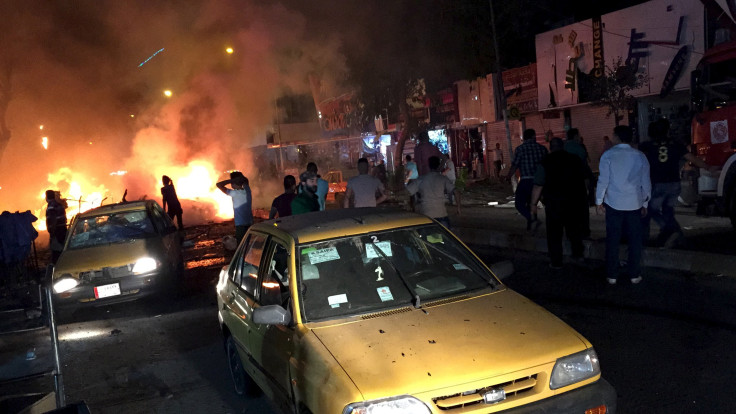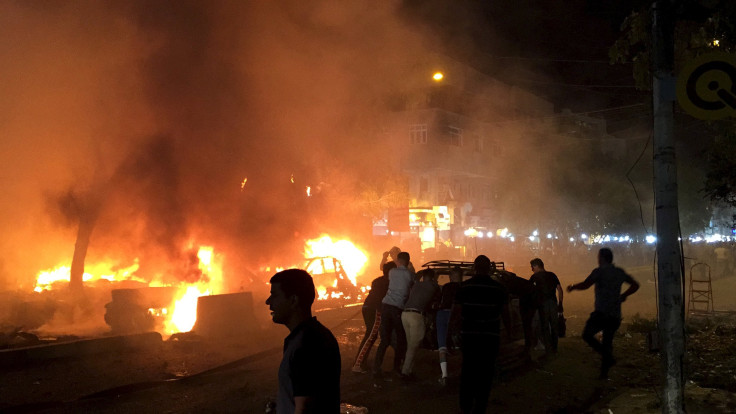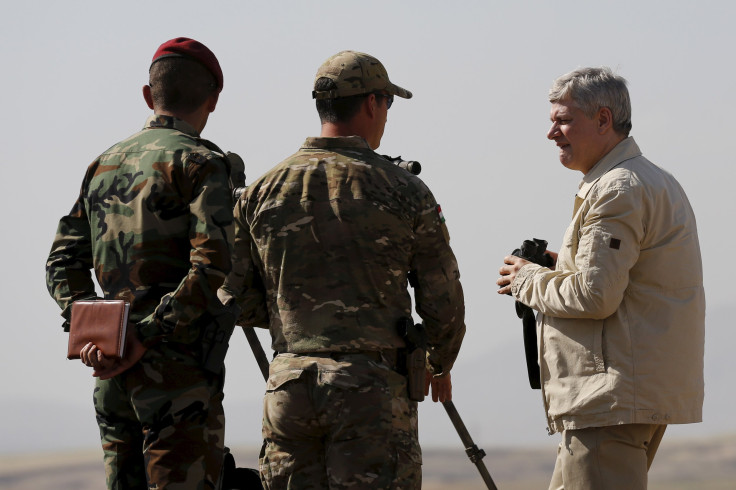Islamic State In Baghdad: Two Near Simultaneous Blasts Kill At Least 17

Two bomb blasts 10 minutes apart killed at least 17 people in Baghdad’s busy Karrada neighborhood Saturday, Iraqi officials said. One blast was a suicide car bomb, while the other was as remotely detonated car bomb. The attackers appeared to target the cafés and restaurants in Karrada, which were filled with people out on Saturday night.
Baghdad has seen an uptick in bombings in recent weeks, which some Iraqi officials blame on Islamic State group militants using mass Sunni Muslim migrations from the north of the country to cover their moves in Baghdad. Six bombings on Thursday night killed at least 21 and wounded dozens more. More than 110,000 Sunnis have fled Ramadi, the capital of Anbar province, in the past two weeks. An Interior Ministry official said bombs were found in three cars belonging to refugees fleeing the violence.

“We cannot deny the fact that there is a link between the recent attacks in Baghdad and the entry of displaced families from Anbar, which has been used by the terrorists to send large amounts of explosives and Daesh [Islamic State group] members into Baghdad,” said City Council member Ghalib al-Zamili on Saturday, according to the Associated Press.
Sunni lawmakers strongly refute those allegations. Iraq’s multidenominational central government is often a tense meeting ground for Iraq’s Sunni and Shiite leaders. Sunni lawmakers regularly accused former Prime Minister Nouri al-Maliki, a Shiite Muslim, for stoking animosity between Sunni and Shiite Iraqis with divisive policies that marginalized Sunnis, going as far as to blame him for the Islamic State group’s rise in popularity in the Sunni-dominated north. He resigned in August of last year amid widespread calls for him to step down.
Canadian Prime Minister Stephen Harper made a surprise trip to Iraq on Saturday, two months after a friendly fire incident killed a Canadian soldier there as part of a U.S.-led coalition fighting the Islamic State group in northern Iraq and Syria. He met with Prime Minister Haider al-Abadi and visited the Kurdish town of Erbil to meet Canadian troops and Kurdish Peshmerga fighters, who have played a key role in fighting the Islamic State group, also known as ISIS, on the ground. Canadian aircraft began conducting airstrikes in Iraqi territory in August at the request of the Iraqi government but expanded their operations in Syria in early April, joining the U.S. and a handful of Arab states bombing ISIS targets there.

© Copyright IBTimes 2025. All rights reserved.






















